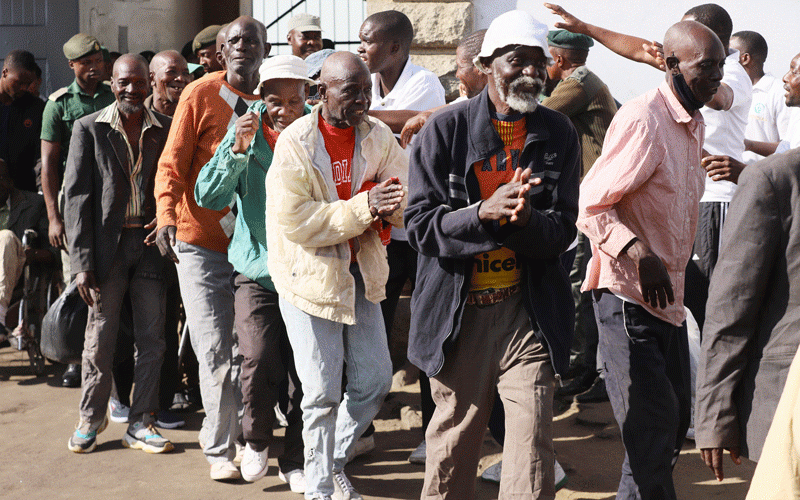
The recent residential clemency/amnesty that saw scores of serving prisoners released from Zimbabwe’s prisons has raised many topical issues.
Over 4 000 prisoners, including rapists and muderers were pardoned by President Emmerson Mnangagwa to decongest prisons around the country.
Zimbabwe’s prisons are known to be hugely overcrowded with terrible conditions that may border on the inhumane.
On the face of it, therefore, regular releases of prisoners to reduce the prison population are good and welcome.
To its credit, the government of Zimbabwe has been consistent in granting amnesty for the release of prisoners over the years.
So, this time, why the uproar?
Images and videos of gleeful elderly men celebrating release for sexual violence offences have sparked outrage and raised questions about the process of the granting of presidential amnesty.
This includes a video of an elderly man talking about being happy to be released unconditionally after serving only four years out of an 18-year sentence for rape of a minor (reportedly 13 years old).
- Mr President, you missed the opportunity to be the veritable voice of conscience
- ED to commission new-look border post
- Zanu PF ready for congress
- EU slams Zim over delayed reforms
Keep Reading
Questions, for example, have arisen on the correct interpretation of the clemency order itself, which appears to be contradictory; on one hand, ordering the release of all prisoners over the age of 65 years regardless of offence and on the other hand, providing a list of specified offences excluded from clemency.
That list includes rape. It is not clear, therefore, if the people released whilst serving sentences for rape were properly released.
If the release was properly done in terms of the order, other questions arise, such as the non-involvement or even notification of the survivors and the community and the lack of any measures by the state to ensure protection from retribution or further harm.
In the absence of a sexual offenders’ registry in Zimbabwe, it becomes imperative that some sort of monitoring mechanism be present to protect survivors and vulnerable communities.
Presidential clemency orders come from the exercise of the president’s executive powers, exercised after consulting Cabinet, to release any prisoner, granted in terms of section 112 of the constitution.
However, the president must exercise his powers in line with the constitution, according to section 2 and section 88 and the Bill of Rights.
One of the state’s most fundamental objectives in terms of the constitution is to ensure justice and the protection of women and children from harm, including sexual violence.
The rights of women and children are particularly emphasised, as special vulnerable groups and the state’s laws and policies must ensure that they are upheld.
I argue, therefore, that the process of granting presidential clemency must be regulated to be in conformity with the constitution and that, in fact, in line with Zimbabwe’s constitutional dispensation it cannot be done without considering all relevant circumstances including the effects on survivors.
I argue that the state rather considers implementing a parole process, which can put in place measures including investigations and social analysis that can reduce the probability of repeated offences and a monitoring system that ensures or promotes rehabilitation of offenders and ensures victim involvement.
In some countries, like South Africa, especially in cases involving personal harm and other violent crimes, there is a necessary practice of attempting victim-offender engagement before deciding whether to release offenders into the community.
Zimbabwe can also be guided by laws in other jurisdictions, like Zambia, where the constitution provides for an advisory committee on clemency, and the president acts on its advice.
It is expected that decisions of the board would only come after a comprehensive process that ensures all relevant issues are considered.
However, a law by Parliament to give effect to, and regulate the process would ensure this.
In addition, the use of a parole system is long overdue in Zimbabwe and in my view, if properly done, would address some of the questions arising now with the exercise of the presidential clemency orders, including fulfilling the state’s obligations to protect survivors of sexual violence and children from harm.
*Tambudzai Gonese-Manjonjo is deputy director at the Southern Africa Litigation Centre









